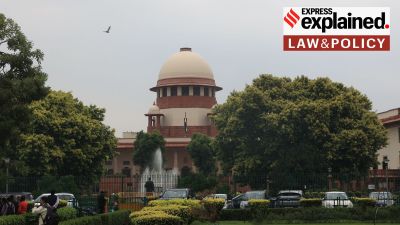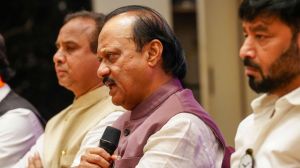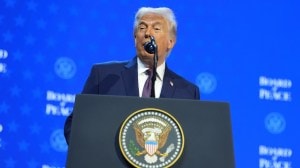We protest too much, expelling MPs is valid
When Parliament does nothing, we complain. When Parliament does something, some of us also complain: but that is the cross that all politica...

When Parliament does nothing, we complain. When Parliament does something, some of us also complain: but that is the cross that all political institutions are destined to bear.
It was in 1993 that corruption got institutionalised in India. The JMM bribery scandal involved the corruption of 10 Members of Parliament, who cast their votes to defeat a no-confidence motion moved in the Lok Sabha against the minority Government of P V Narasimha Rao. The CBI filed criminal cases against them saying they received bribes to do so. Article 1052 of the Constitution of India provides that no Member of Parliament can be made liable to any proceeding in any Court in respect of any vote given in Parliament: and for this reason alone the Supreme Court dismissed the cases against the bribe-takers, hoping that Parliament would do something in respect of such transgression.
Seven long years after the Supreme Court decision, Parliament did nothing.
Now with the cash-for-question scandal surfacing visually 8220;seeing is believing8221; Parliament has done something, and the question is whether its decision to expel the errant members involved is valid and constitutional.
I believe it is.
Article 1052 prohibits Courts from inquiring into what goes on in Parliament: Whether when votes are cast or when questions are asked. The next sub-clause8212;Article 10538212;says that the powers, privileges and immunities of each House of Parliament and of its Members are the same as those of the House of Commons in England8212;8221;until otherwise defined by law8221;: after 55 years they have not been so defined by law.
What then would the British House of Commons do in such a situation?
Speaker Mavlankar8212;the first Speaker of the Lok Sabha8212;answered this in 1951 in connection with the case of an errant Member belong to the ruling Congress Party.
He said that 8220;a member may behave in a manner in which the House would not like him to behave and yet it may be argued that it is not a breach of privilege in all such circumstances the practice in the House of Commons has been to constitute a Special Committee8221;, and then he went on to say it was for the House to take suitable action to maintain the dignity and credibility of Parliament and its Members.
As simple as that. The Special Committee appointed in the cash-for-questions case has inquired into the matter, and has given its recommendation after asking the errant MPs to have their say. And the Lok Sabha has acted on the recommendations. The Constitution has been observed. In the hey-day of the Roman Empire, after the Emperor issued his edict on any controversy there was no further argument. Roma locuta est: cause finita est. 8220;Rome hath spoken, the cause is ended8221;. It was only after the Emperor8217;s edicts began to be questioned that the rot started: providing material for Edward Gibbon8217;s 8220;Decline and Fall of the Roman Empire8221;!
- 01
- 02
- 03
- 04
- 05































